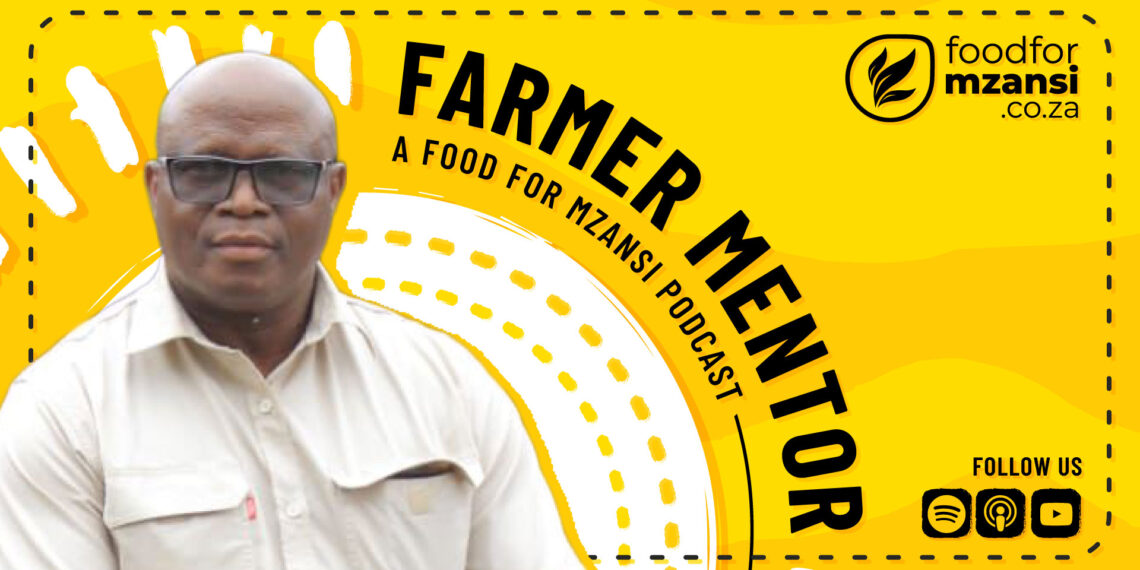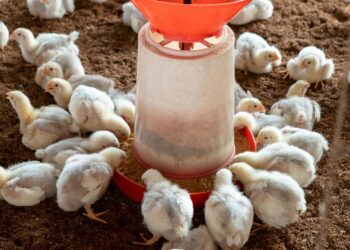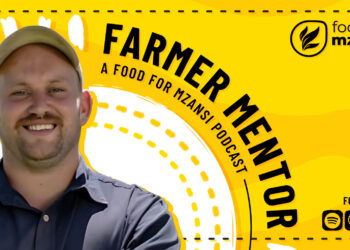After more than two decades teaching agricultural sciences, Phaladi Matsole has turned theory into practice as a thriving maize producer in the Free State. Read his story, from educator to entrepreneur, in this episode of the Farmer Mentor series.
Drawing on 24 years of shaping young minds in agricultural sciences, Phaladi Matsole traded the classroom for the fields, turning his lessons into practice as a commercial maize producer in the Free State.
His farming journey is rooted in a lifelong academic and professional commitment to the field, beginning with his primary school years and extending through multiple university qualifications.
“I have a deep understanding of agriculture as a sector and as an industry,” Matsole shares, explaining that his extensive studies were the primary motivation to start his own operations.
He initially started with livestock farming in a communal camp in 2003, but his true passion lay in crops, which led him to crop production in 2010. “I remember very well the first crop, field crop that I produced, it was soya beans.”
Building a farming enterprise
A year later, Matsole’s strong relationship with the Mafube Municipality opened doors for expansion.
“The following year, I was given a lease by my municipality. I’ve got a very good relationship with this municipality, and maybe on the same score, I must encourage all the emerging farmers and those who are entering the sector to establish good relationships with their municipalities because our municipalities are having arable lands that must actually be utilised by our people.”
Related stories
- Ditlopo builds future with Boer goats and Brahmans
- What every farmer should know about workplace injury laws
- Maize: Choosing the right varieties for local conditions
- JW believes in back to basics while building a legacy
He now leases close to 292 hectares from the municipality in Frankfurt, Free State, a base that enabled him to grow his operations further.
As his enterprise expanded, Matsole recognised that agro-processing was essential for long-term sustainability and added value to his produce. He began planning for this move, intending to launch his maize milling operation in 2019, but the onset of the Covid-19 pandemic disrupted those plans.
Despite the setback, his business continued to grow, and by 2020, he was cultivating additional land in Mpumalanga. It was about 513 hectares under lease, where favourable climatic conditions have enabled strong performance under dryland farming.
The challenge of funding
For Matsole, the biggest challenge in agriculture remains access to finance. “Funding is the biggest challenge, especially post-Covid. We are faced with difficult problems because during Covid, there were no operations. As a result, we struggled big time.”
He highlights the need for systemic change. “The sooner the world comes to the realisation of funding of agriculture, the better. Because this is the provider of food. This is a sector that provides raw material. This is a sector that stabilises the economy. This is a sector that provides jobs.”
Matsole maintains that whether one is new to farming or an experienced producer, success in agriculture relies on three crucial qualities: discipline, commitment, and hard work. He emphasises that farming demands unwavering dedication, often requiring long hours and years without a break, making discipline and commitment essential traits for anyone hoping to thrive in the sector.
“If you want quick money, leave agriculture, go and subscribe to tenders. Lastly, agriculture requires a person to be focused. You must have focus.”
Beyond production, Matsole’s vision is to leave a lasting impact. “Some farmers leave a legacy behind, and some farmers leave nothing. But I’m one person who wants to leave behind a legacy of job creation. I want to leave behind a legacy of building a branch from scratch. A legacy of building a brand on your own and working hard with passion for your brand.”
Matsole’s ambition is to see his business recognised among the leading names in the industry. He aims to build a brand that not only represents the few black entrepreneurs in the sector but also competes confidently with established major players.
Advice for future farmers
Passion, Matsole says, is the foundation of farming success. “People must develop a passion for agriculture. If you think you want to produce vegetables, you must have a love for vegetables. And firstly, you must have researched the market.”
He warns that blindly following trends without proper research can lead to years in farming without building a meaningful impact or lasting presence in the industry.
He emphasises the importance of continuous learning, noting that staying informed about innovations and emerging technologies is essential in a rapidly evolving agricultural sector.
“Farming, it’s not a beast. People shouldn’t be scared, but people should be ready to roll with the dynamics of the sector,” Matsole says.
READ NEXT: Beekeeping sector poised for growth, jobs, and sustainability
















